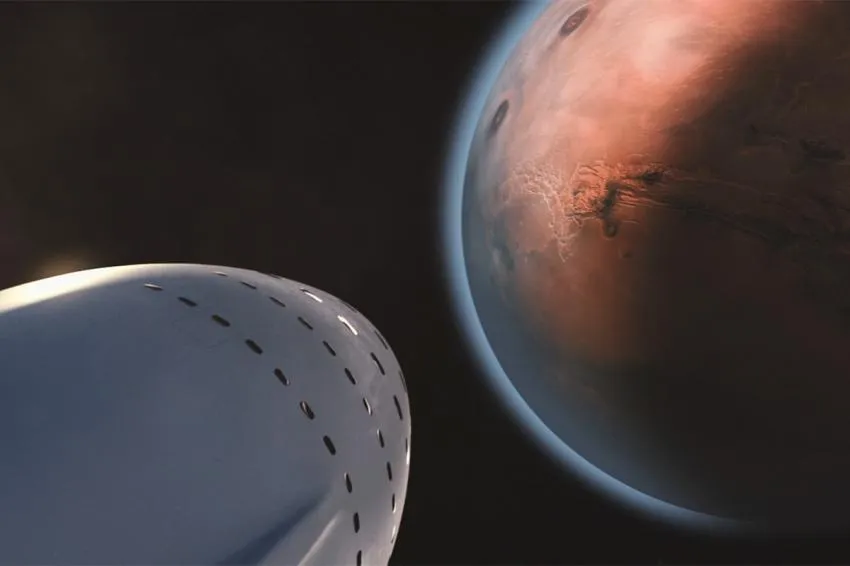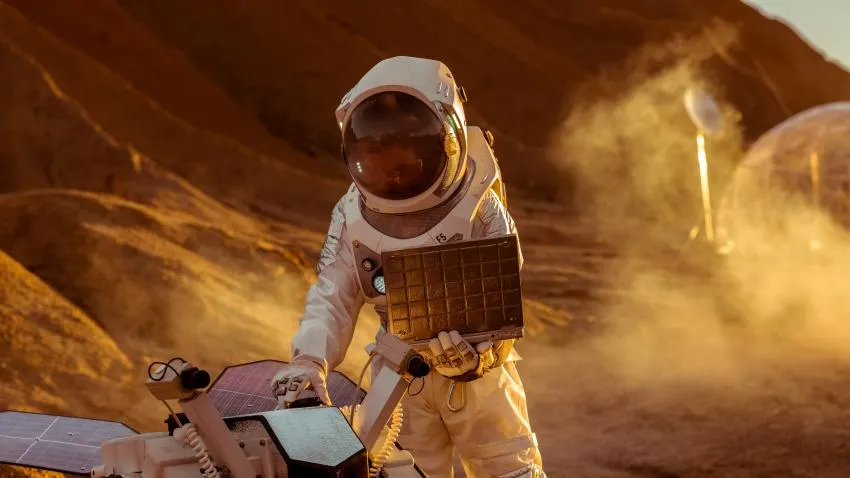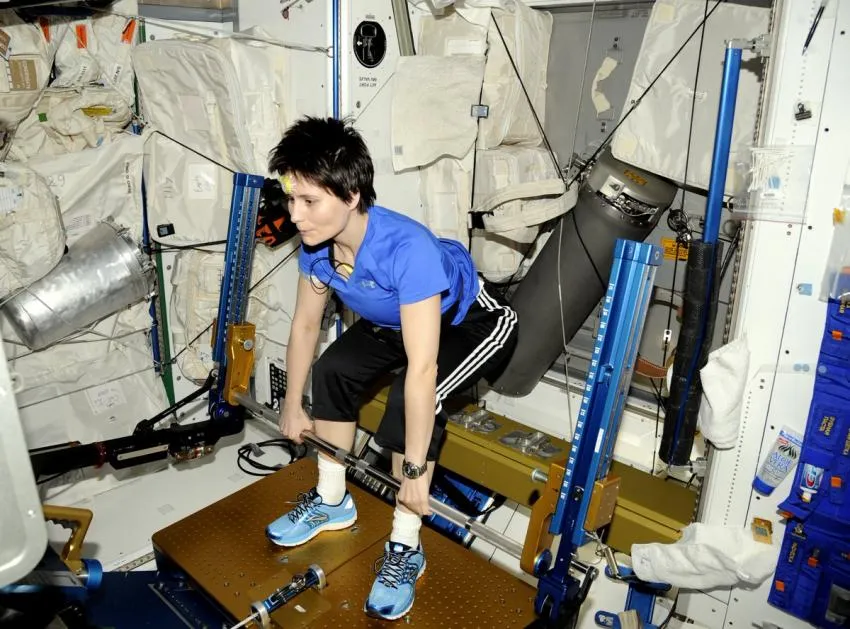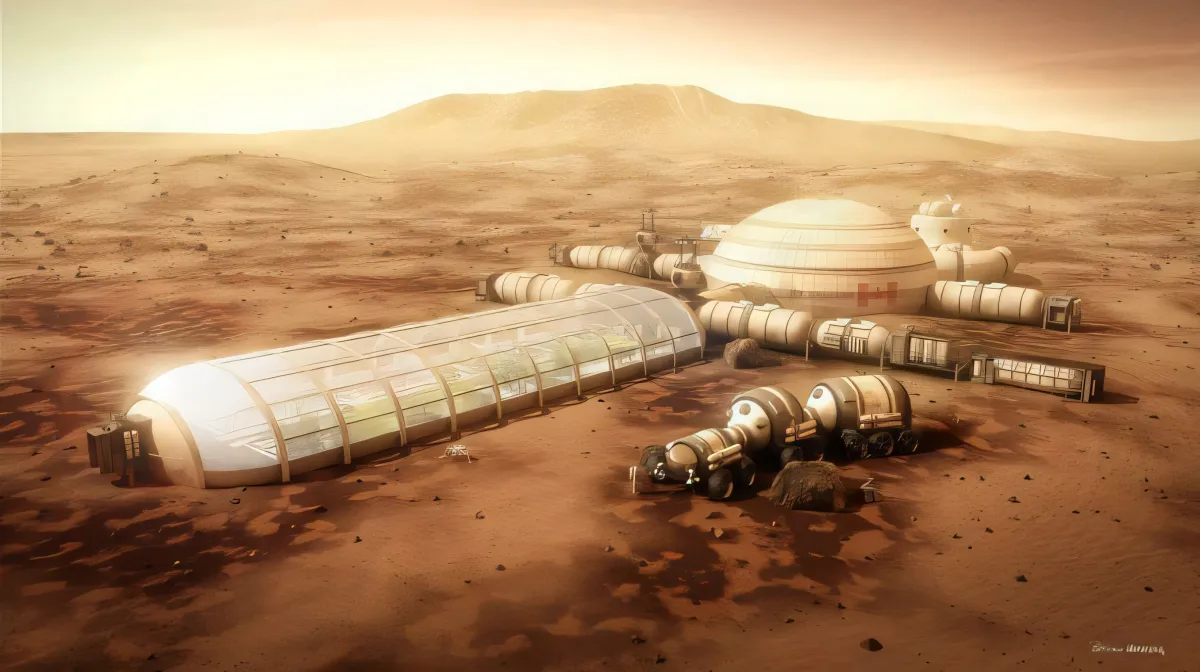10 Reasons Why Colonizing Mars Is A Terrible Idea

Anyone who's anyone is familiar with Elon Musk, the CEO of Tesla, and his plans to colonize the red planet, using his interstellar exploration program SpaceX. Yet, in regards to more pressing manners, this idea, when put into practice, will only hinder the development of mankind.
Those wishing to leave this good green earth in favor of our celestial neighbor will be in for a rude awakening upon realizing their time could be better spent back on this globe, working to remedy the impacts of issues that are highly prevalent in today's geopolitical climate.
For those still unsure what it is I'm talking about, just hang tight, as I divulge what is irrefutable in the eyes of realists everywhere. Yes, I am aware that's a pretentious statement, and I hope it has caught your attention, readers.
Here are 10 reasons why humanity is better off not leaving homework undone before settling on other worlds.
1. Terraforming an entire planet is much harder than one might think
As things already are, we can hardly treat our own ecosystem with respect, so why bother with establishing a breathable atmosphere on a planet that is even more unforgiving than the world we currently inhabit?
Those brainiacs behind the development of a whole new environment only make it sound easy on paper because they want the masses to feel like there are greater places to inhabit that are just beyond our grasp. This is only half-true.

There is only so much that can be done with our current level of technology, and that includes getting several dozen individuals into space without incident, which is likely to go awry on the way to Mars.
Individuals will undoubtedly seek "intimacy," during the voyage to Mars, which is a problem in more ways than I count, given that adaptive measures are limited once these participants are on their own once in space and have to tend to expectant mothers.
In any event, humanity is greatly unprepared for the trip to Mars given the current limitations in technology. Even if measures are taken to mitigate complications, there are far more trifles to be experienced.
Seriously, the amount of energy required just to establish a whole new atmosphere is astounding and would result in far more damage to the red planet than what it provides. I do not see any merit in wrecking another world for humanity's sake.
2. There are too many issues that require attention already
Like a child who is eager to play with their new toy but first needs to finish their veggies, humanity is stepping out of bounds with their desire to send the lot of us into space before tending to the issues that plague Earth.
Mars will be an entirely new challenge, which is why I see little reason in getting us there before we can finish our "veggies." Too many people are suffering in this world because of issues that can easily be remedied by those who possess an overwhelming abundance of resources.

While there is already an excess of food and water available to everyone in this world, the means of distribution remains the issue separating those who can eat and those who cannot. To be able to feed however many billion people on Mars would be a problem, given that there is not currently a sustainable means of agriculture.
To add fuel to the fire, with the ongoing climate crisis, humanity is finding itself in even more of a bind when it comes to getting food to those without delivery methods (besides DoorDash). In the years to come, there will only be more and more cultures out there, besides just those in third-world settings, who will have a tough time growing crops and sustaining livestock.
It's safe to say that those who can afford to develop a means of food accessibility for those less fortunate than the upper class can expend a few more dollars to keep the commonwealth well-fed and willing to cooperate.
Honestly, I feel that the people who wish for the Mars expedition to become a reality just want to sweep ongoing issues under the rug. They want to see this world fall apart, and are content in their climate-controlled homes with fully-stocked pantries because these issues don't affect them personally.
3. Time is of the essence
In addition to the difficulties in just getting to Mars, there are too many issues present that make it tricky timewise. For starters, there is the issue of figuring when and how to even start this endeavor.
Time is our most valuable currency, as we only have so much of it to spend on tasks that forward our progress as a species. The time spent reviewing individuals to go to Mars, preparing them for the journey, and teaching them the basics of survival in a barren world are better applied to what can already be done here.
The rich benefactors willing to back the voyage to Mars, who are using their limited time scheduling how to accrue funds for this volatile project could instead be racking their brains by looking into what can be resolved using their mountains of dollars.
The billions of individuals who will remain planted on Earth, be it because they failed the screening process or because they simply have no interest, the latter pertaining to yours truly, see no rationale in throwing away their money.
The likelihood of this project succeeding is slim given our current state, in reference to the economy as well as technology. There is too much riding on this.
As there is no guarantee of successfully reaching Mars on the first few attempts, there are better ways that time can be spent than on such a potentially fruitless effort.
Those who wish for us to live among the stars are wasting everyone's time, including their own. It just seems to me they want to focus on an out-of-this-world prospect as a way to boost morale rather than using their time wisely, like trying to find a cure for cancer or the energy crisis.
4. It's not for everyone
One's mind can only handle so much. As such, there is a strong likelihood that even those who pass the screening process for the SpaceX initiative will not be able to endure what awaits them on their way to the red planet.
Just being an astronaut is difficult for these same reasons. Apart from cramped conditions inside the spaceship, individuals will have to put up with a lack of sociability, as they will be stuck with the same individuals for however many months, which is likely to get old real fast.

Without a wide, open atmosphere, and an environment that can suit everyone, individuals onboard that ship will likely become depressed, and some even irritable. You can only circle one area so many times without losing your mind.
I know I wouldn't be capable of enduring the trek to Mars. Even if my anxiety can be remedied on the ship, and I already can handle claustrophobia, there is no way I could spend months being trapped like a sardine in the vacuum of space with the same individuals for however many months, even if we do get along. It'd be suffocating.
Putting humans in a spaceship for months on end is like putting a horse in proximity to a carousel; the afflicted individuals will not be able to handle it during that period without the desire to break everything in the surrounding area due to a declining mental state.
As things currently are with the ongoing socioeconomic crisis, too many people are stressed out and are unfit candidates for the expedition, and putting them in a vacuum-sealed box for the span of almost a year seems like a disaster waiting to happen.
5. It's a health hazard
In part from being stuck in a ship, individuals traveling to the red planet will be rolling the dice on whether or not they will contract awful afflictions from their time inside what is essentially a microwave.
Without an atmosphere, the individuals traveling to Mars will be at an even higher risk for cancer due to lacking that "filter." A metal box will not keep out carcinogenic agents, and lead is only so helpful at keeping individuals safe.

Even if the craft housing those who plan to live on Mars is not that close to the Sun, the ambient radiation from nearby planets such as Venus, and those that transmit from Jupiter, will likely give the majority of passengers cancer before they even set foot on the red planet. That doesn't even count other maladies that can be contracted inside the ship.
As in an office setting, so many individuals inhabiting the same space will result in the transmission of diseases such as the common cold and influenza, and if SpaceX decides to put individuals from other nations on board, the ship will become an even greater biohazard.
There is only so much one can do to stay healthy, and being stuck in a ship with individuals carrying god-knows-what will only result in an epidemic that could potentially affect the colonization process in the long haul.
Me, being the germaphobe I am, can hardly stand being in the same space with strangers. If I had to endure such a burden onboard the rocket to Mars, I'd go out of my mind for sure.
6. Mars isn't exactly human-friendly
Continuing on with the idea of Mars being a health hazard, the red planet is not a suitable environment for us humans for a multitude of reasons.
Due to its distance, Mars does not receive the same amount of heat from the Sun as Earth does, in part because of this and also its thin atmosphere and lighter density.

As a result, the very soil that covers the surface of Mars is irradiated to a toxic degree, preventing any possibility of propagating flora. The only option at that point is to establish greenhouses, which, again, is tricky due to the radiation.
Standard windows won't repel radiation, and covering them with frozen carbon dioxide and dirt will prevent any light from getting through altogether, leading to a decline in the mental health of colonists, from lack of food as well as vitamin D.
Though seeing the red planet be made into another blue and green globe is quite the prospect, accomplishing said goal comes with too many hazards, both environmental and humanitarian, for some to consider the endeavor worth it.
Sorry, but I'm not going to risk my safety on a planet that's anti-human. Until Mars is safe enough for me to go outside shirtless (which is unlikely to occur in my lifetime), I'll gladly stay where the grass is green.
7. Mars is not energy-efficient
Mars does not leave us with many options for sustainable energy save for what we bring there. Any attempts at creating new alternative means of powering machines will not be very successful without outside help.
Though the surface of Mars is irradiated, due to how far it is from the Sun, it does not receive as much light, leaving solar power as an insufficient means of electricity, and the extreme winds from a weaker atmosphere create more problems than it solve.

The volatile environment created by a weak atmosphere would only allow wind power to work as a viable option, and even then, the environment is so extreme it might damage the equipment.
Due to circumstances, I would prefer not to get into it, my parent's house is rather dusty, which makes it difficult to change some of my devices because of dust clogging the charging ports. The dust on Mars is even finer, allowing it to infiltrate and effectively destroy machines from the inside. I'd hate to have such an issue present itself to my Android, let alone billion-dollar NASA equipment.
Mars leaves very little in way of sustaining electrical equipment, and thanks to the difficulties that lie on the surface, there is very little humankind can do to remedy the situation, at least at this moment in time.
Nomophobia aside, living on Mars would be an absolute nightmare without the necessary means to keep our electronics operational and free of space dust. I couldn't bear to see vital medical equipment fail, all because some smart alec thought settling on Mars was a good idea without the right countermeasures.
8. Only health junkies could take the trip
Asides from other planets, space, in general, is also hostile towards us humans. It can literally hinder our development and make the simplest of tasks impossible save for only the most dedicated of individuals
Just inhabiting Zero-G is taxing on the human body, as it causes accelerated degradation of muscle and bone tissue compared to that of a standard sedentary lifestyle on Earth.

As Newton's third law of motion dictates, any action made will have an equal and opposite reaction when force is applied. In an environment where the laws of physics differ slightly from that of a planetoid, staying in shape becomes difficult.
Personally, I would not be fond of living in space, even if it was only for a few months, as I do not possess the willpower to adopt a whole new form of exercise altogether. So much would differ from my standard routine that I could not imagine I'd operate the same, even when I return to life on solid ground. Those who can do so must be rather flexible.
Life in space will be treacherous for those who take the maiden voyage to Mars, but it will be interesting to see just how many of those individuals will be able to handle the psychological stress of needing to exercise almost non-stop.
Though I do work out as a means to burn stress, I don't possess the level of determination like some people to exercise six hours or more a day. Being in space would make me a skinny legend, but not in the way I want.
9. Money talks
Elon Musk, the entrepreneur that he is, should have no problem getting to Mars, given the billions of dollars he sleeps with every night. Yet, for the commonwealth who can barely sustain themselves, they will be in for quite a rude awakening.
Given the insurmountable funds needed to fuel a spaceship, sustain its crew, and actually get them to their destination, there are better uses for said money than investing in a trip that might not even play out.

As things already stand, it seems unlikely we will be able to launch by 2024, and it does not sound likely that Musk and other benefactors will give the participants a free ride.
I could write a thousand term papers on all the better uses for that money than some hair-brained scheme to fulfill a pipe dream, but such a discussion is delicate. For the sake of the average bear, like myself, I would rather put my money somewhere that gives me a sense of satisfaction and completion, like paying off my car or student loan debt. The Mars trip just seems wasteful.
In comparison to the more prevalent issues that need remedying, like climate change, world hunger, etc., sending a group of wannabe astronauts to a hostile environment does not sound like something that will end well.
It makes me angry that countries like the US who inhabit individuals with an excess of money don't incentivize those individuals to take action, given that the wealth they possess is far more than one should be capable of spending in a single lifetime.
10. In space, no one can hear you scream
Once the SpaceX crew lands on Mars, they will be on their own for the most part. If any sort of emergency comes up, they will need to fend for themselves until ground control can reach them in a timely manner.
Based on Mars's orbital cycle, a rescue crew would only be able to make contact every two years or so. Otherwise, it would take much longer to be able to provide aid to those with potentially life-threatening difficulties.

In the United States at least, just being able to get to the hospital on time to treat an injury or illness is difficult, so imagine how frustrating it would be if the supplies necessary to treat such ailments could only be provided every couple of years.
I could not imagine being stranded on another planet, where the resources needed to keep everyone alive and well are seldom available. Though I am not present to count just how much will be brought along on the trip to Mars, it feels even a surplus of medical supplies and backup equipment will not suffice in sustaining the wellbeing of the colonists.
For those who think it is possible to toughen out any sort of medical emergency without outside aid, consider the likelihood of survival as a child alone in the world. There is little possibility of survival.
Living in the US, I am already disappointed with the healthcare system we have, but if any possibility of getting medical aid in space were thrown out the window, I'd probably just end things right there, by throwing myself into the void.
There is very little that can be done to ensure that those who take off for Mars will make it there alive and well. As things stand, better use of humanity's efforts in tackling the more tangible problems present on Earth.
Opinions and Perspectives
The medical emergency scenario is frightening but surely we'd have advanced medical AI and equipment on site.
These are all valid concerns but humanity needs ambitious goals to drive innovation.
The dust issue seems solvable with proper engineering. We've dealt with similar problems before.
What about the psychological impact on those left behind? Families separated by millions of miles...
The timeline concerns are real. We need to be honest about how long this would actually take.
The comparison to Earth's current problems is fair, but space exploration often leads to solutions for Earth-based issues.
I appreciate the balanced view on health risks. Space travel is inherently dangerous.
Wouldn't the first Mars missions be more about research than actual colonization? These seem like long-term problems.
The energy concerns are valid but overlook potential nuclear solutions that could work on Mars.
Having studied aerospace engineering, I can confirm many of these technical challenges are even harder than described.
The article raises good points about resource allocation, but I think the benefits outweigh the risks.
We should focus on moon colonization first. It's closer and many of these issues would be easier to solve there.
The psychological screening would need to be incredibly thorough. Not everyone can handle that level of isolation.
Interesting article but it doesn't address the potential benefits of developing closed-loop life support systems.
The radiation concern is huge. Even with shielding, long-term exposure would be devastating to human health.
I agree with most points but think the economic argument is weak. Space exploration often generates positive returns on investment.
The article makes valid points but seems to ignore the potential scientific benefits of having a Mars base.
These issues are significant but not insurmountable. Each generation faces its own 'impossible' challenges.
The rescue timing is scary but wouldn't we have multiple redundant systems and backup plans?
As a biologist, I'm fascinated by how we might adapt to Martian gravity. Our bodies would change significantly over time.
The funding argument overlooks private investment. Not all space exploration money comes from public funds.
I found the point about exercise requirements particularly interesting. Six hours daily just to maintain muscle mass seems unsustainable.
The time frame issue is crucial. We're talking about decades or centuries, not years, to make Mars livable.
You make good points about healthcare, but wouldn't developing solutions for Mars help advance medical technology on Earth too?
The dust problem reminds me of the challenges faced during Moon missions, but Mars dust would be even worse.
The mental health aspects really concern me. We've seen how lockdowns affected people - imagine that times a thousand.
The comparison between Earth's current problems and Mars colonization is oversimplified. We can pursue multiple goals simultaneously.
I research environmental systems and can confirm the terraforming challenges are even more complex than described here.
Just getting to Mars is hard enough, but creating a sustainable colony seems virtually impossible with current technology.
Anyone else notice how the article didn't address the potential psychological benefits of having a backup planet for humanity?
The article's final point about medical emergencies is terrifying. Imagine having appendicitis millions of miles from the nearest hospital.
Interesting point about exercise in zero-G. I wonder if we could develop artificial gravity solutions for the journey.
The energy efficiency problems really worry me. If we can't even figure out reliable green energy on Earth, Mars seems like a pipe dream.
I think we're underestimating human adaptability. Yes, these are huge challenges, but we're remarkably good at finding solutions when we need to.
The soil toxicity issue is particularly concerning. Without viable soil, how would we ever achieve self-sufficiency?
These are all valid concerns but remember we once thought flying was impossible. Innovation often proves skeptics wrong.
The article makes valid points but comes across as overly negative. Space exploration has always faced seemingly insurmountable challenges.
I'm particularly worried about the psychological impact. Isolation on Mars would be unlike anything humans have experienced before.
Actually, the two-year emergency response window isn't entirely accurate. Launch windows occur every 26 months, but emergency missions could potentially launch outside these windows.
The healthcare point hits hard. If we can't even provide adequate healthcare on Earth, how can we possibly manage medical emergencies on Mars?
As someone who studied environmental science, I can tell you terraforming Mars would take thousands of years, not decades like some people seem to think.
The comparison to eating your veggies before dessert really struck me. We're literally trying to skip to the exciting part without doing the necessary groundwork.
We definitely need to solve Earth's problems first, but I don't think it has to be either-or. We can work on both simultaneously.
The dust issue mentioned is fascinating. I never considered how Martian dust could destroy equipment. That alone seems like a massive hurdle.
That's a fair point about asteroid mining, but wouldn't it be better to perfect those technologies closer to home first? The Moon seems like a more logical stepping stone.
The article neglects to mention potential benefits like asteroid mining and technological advancement. It's not all doom and gloom.
I work in healthcare and the medical challenges mentioned in point 5 are spot on. We struggle with disease control in hospitals on Earth, imagine trying to manage that in space!
The cost argument makes sense but I disagree about it being a waste of money. Look at how much we spend on military budgets globally - surely some of that could be redirected to both Earth's problems AND Mars exploration.
You've got to admire the ambition though. Even if it fails, at least we're trying to push boundaries. That's how progress happens.
What about the radiation issue? That's my biggest concern. The article mentions cancer risks but I feel like this needs more attention. We'd basically be sending people to their death.
The mental health concerns really hit home for me. I get cabin fever after a week at home, let alone months in a tiny spacecraft!
While I understand the skepticism, I think you're missing the bigger picture. Space exploration has historically led to numerous technological advances that benefit life on Earth. The research required for Mars colonization could help solve some of our current problems.
I completely agree about the terraforming challenges. We can't even properly manage Earth's ecosystem and some people think we can transform an entire planet? That's way too optimistic.
